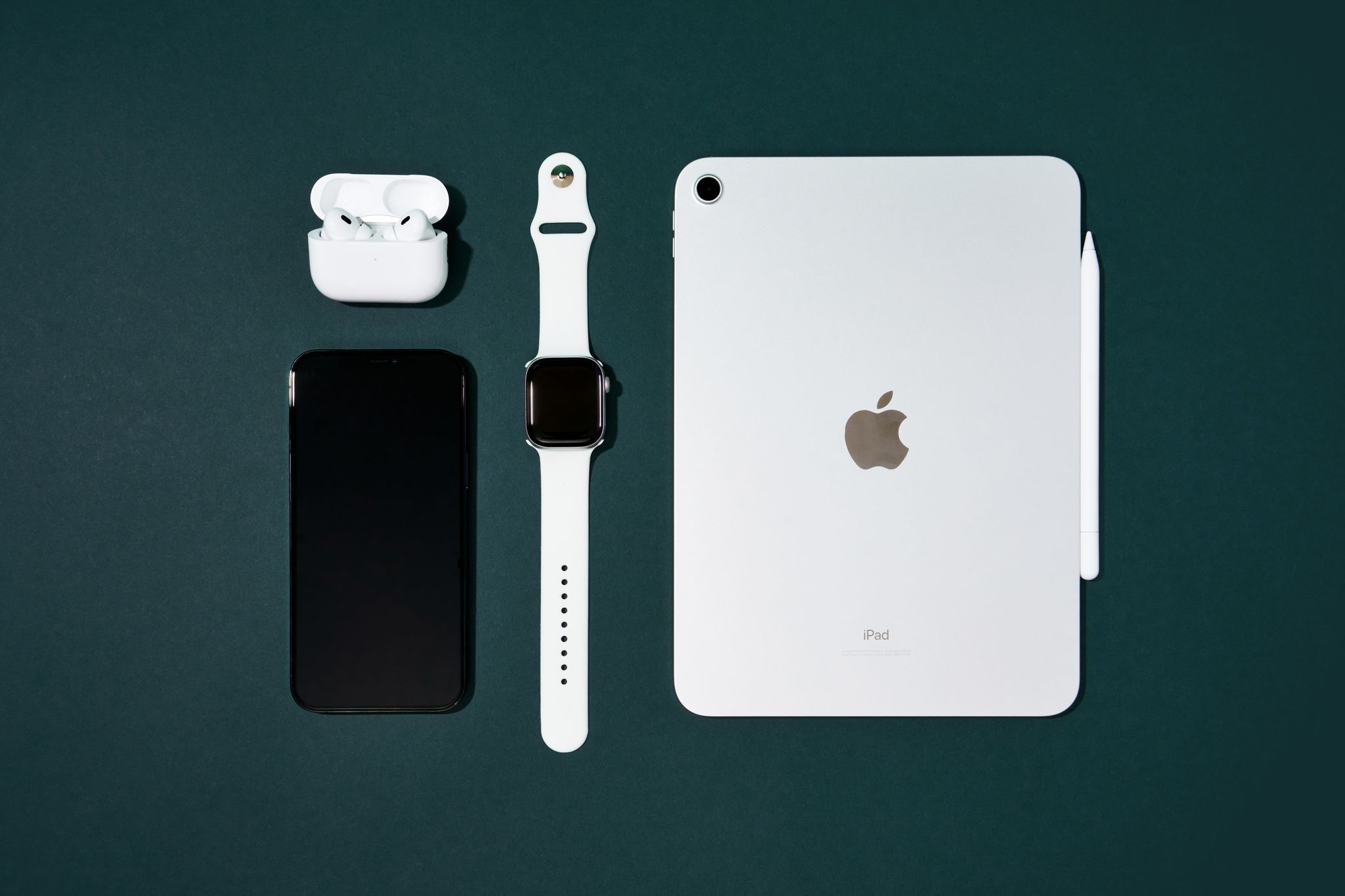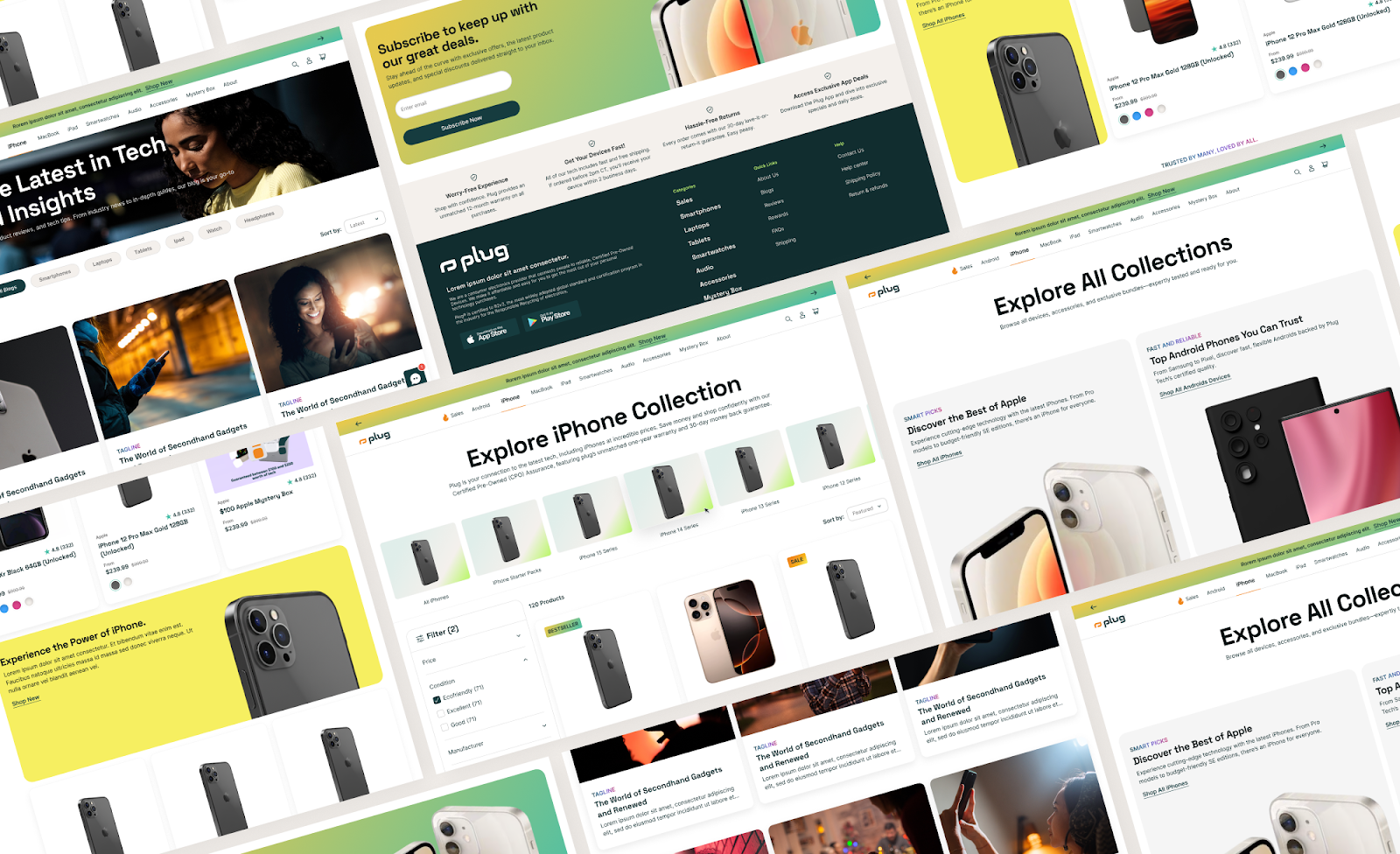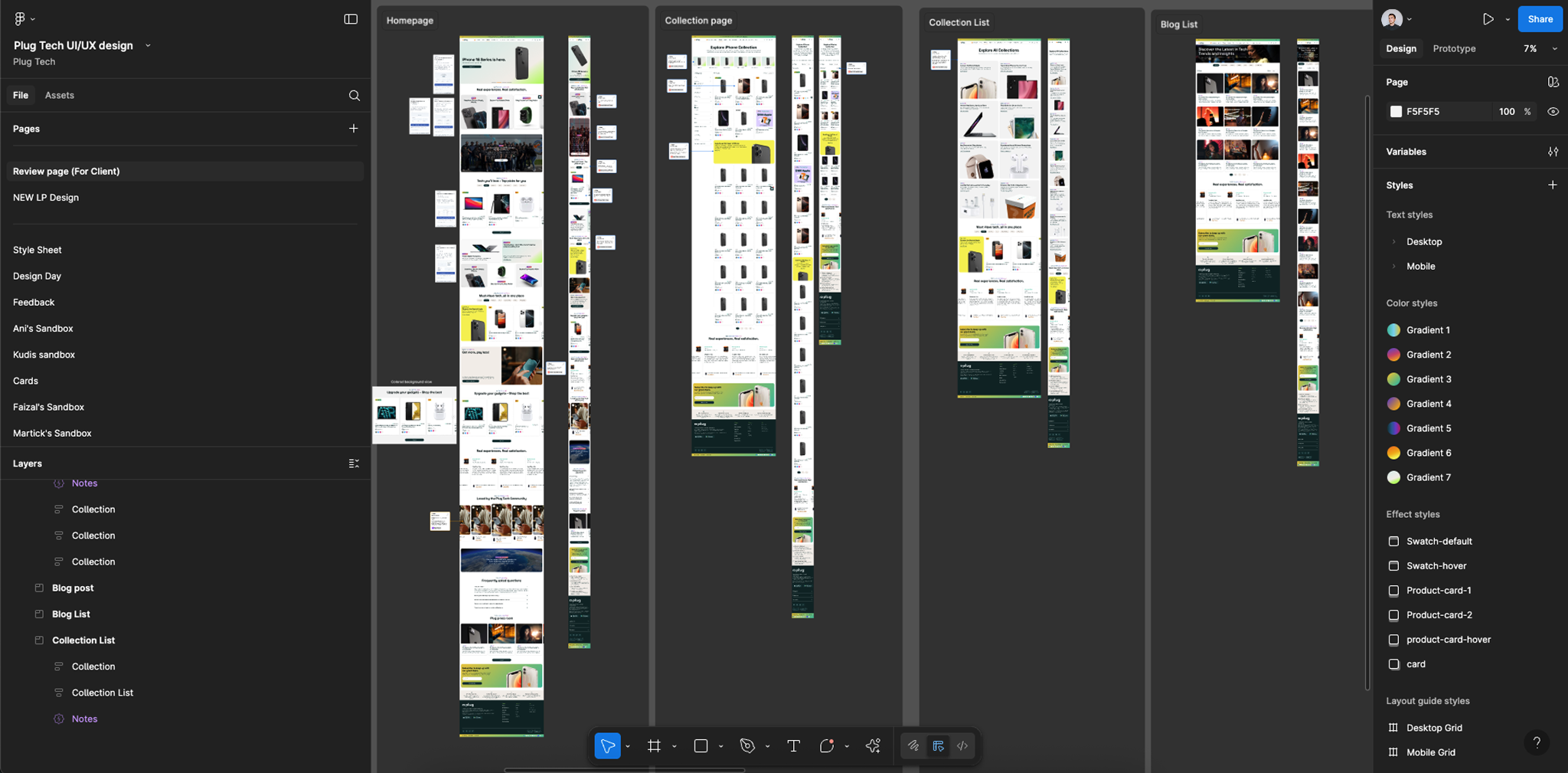With lofty growth goals, Plug Tech teamed up with Prismfly. They needed their DTC experience to match the brand’s aura on social, while also setting up an ongoing optimization program. The team locked in and delivered a nearly 27% improvement—under budget.
+26.77%
Revenue Per User

+18.79%
Add to Cart

+12.23%
Average Order Value


Co-Founder & CMO
Plug Tech is a growing electronics resale brand focused on providing high-quality refurbished devices at accessible prices.
With ambitions to triple revenue in the next year, the brand needed a visually refined and technically reliable site to match.
The client wanted a clean, Apple-inspired aesthetic and prioritized accessibility and speed, requesting a “future-proof” website as a foundation for future marketing initiatives and scaling.

With tight timelines, a busy founder, and an ambitious roadmap, the project needed to move fast without missing details. Prismfly came in to close the gaps.
The team began by condensing full brand guidelines into a design-forward style sheet to meet budget and timeline needs without sacrificing quality.
A dedicated design workshop aligned the team on visual direction, ensuring consistency across components and creating a scalable design system that streamlined development.
Throughout the process, stakeholder interviews, competitive audits, and iterative feedback loops informed each design decision.

By prioritizing key interface sections like product cards and homepage layouts for early design and QA review, the team caught issues faster and refined critical elements sooner. Involving developers early ensured designs were technically feasible and reduced rework later in the build.
Development centered on creating a scalable design system to streamline future updates and reduce long-term maintenance costs, while the phased launch approach ensured stability and minimized risk during rollout.
The team used step-by-step testing and documented reviews to catch issues early, ensuring a smoother launch with fewer post-deployment problems.
Compressed timelines required creative problem solving, including reducing full branding into a simplified yet effective design system.
The team also had to communicate clearly with a solo entrepreneur client, ensuring they remained involved without overwhelming them.
BugHerd also revealed pain points in usability and search functionality, prompting discussions around better internal documentation and client-friendly feedback processes.
The redesigned experience made an immediate impact across the customer journey. With a more intuitive UI and optimized checkout flow, users were not just browsing more effectively—they were buying with greater intent.

In the 30 days following launch, average order value jumped by 12.23%, and revenue per user increased by 26.77%, signaling stronger purchasing behavior from engaged visitors.
There were more funnel improvements across the table: an 18.79% rise in add to cart events, a 20% lift in checkout sessions, and a 4.84% overall conversion rate increase.
The post-launch traffic proved to be more qualified and ready to convert, validating the new experience’s impact on quality over quantity.
Design and development worked in tandem from the start, ensuring technical feasibility and reducing costly iteration cycles.

The team also leveraged phased rollouts to deliver under a tight timeline without compromising the long-term vision.
Our regular check-ins, detailed QA processes, and collaborative planning helped create a seamless handoff from design to development, and ultimately to launch.